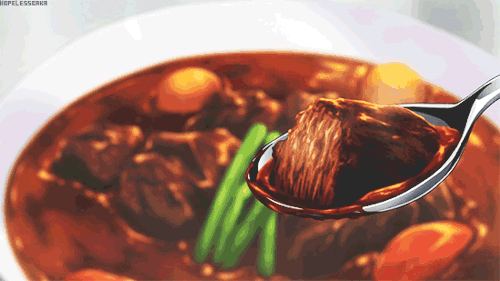WHAT
What is food safety?What are the groups responsible for food safety?Food handling, preparation, and storage in methods that avoid foodborne illness are described as part of the scientific approach or discipline of food safety (also known as food hygiene). A food-borne disease outbreak is the emergence of two or more cases of a comparable illness brought on by consuming a common meal. To prevent potential health risks, a variety of practices should be followed. Food safety and food defense frequently work together in this way to protect customers from damage. The U.S. Food and Drug Administration (FDA) is in responsibility of carrying out themajority of the laws, rules, and regulations that are included in the Food Safety Modernization Actexternal symbol (FSMA), however CDC plays a crucial role.The legislation, which was passed into law in 2011, aims to improve the system for ensuring food safety in order to better protect the public’s health. The Food Safety Modernization Act (FSMA) emphasizes preventing food safety issues before they arise and recognizes the significance of effective foodborne disease and outbreak surveillance systems. It is essential to quickly identify and address foodborne disease outbreaks in order to put a stop to them, stop them from happening in the future, and ultimately reduce the burden of foodborne illness.The FSMA requires CDC to strengthen foodborne illness surveillance systems through better data collection, analysis, and reporting.

WHY
Why should we practice food safety?A human being needs food to survive, which is one of the most important needs. We get the nutrition and energy we need to keep up with our everyday activities from the nutrients we obtain from food. In terms of societal culture, food also has a significant impact.Food safety is a major concern for all of us. Customer protection from food poisoning and other foodborne illnesses that can have a serious impact on human life is the goal of this component of the food supply chain. You may be confident you are doing everything possible to prevent an outbreak of a foodborne illness by putting good, safe practices into place.Every day, food and drink-related illnesses affect people all over the world. Food poisoning can be caused by bacteria, viruses, and parasites that are present in food. Knowing how it spreads will help you prevent it, thus it is essential to be aware of this. As a result, for food manufacturers to produce and market food that is safe to consume, good food hygiene is crucial. It guarantees regular, healthy life.

WHERE
Where can we apply food safety?Foodborne infections affect millions of people each year and might make you feel like you have the flu. Foodborne infections can potentially result in critical health issues or even death. We may apply food safety to our homes by using the kitchen as an example. Since we cook there frequently, we must constantly wash our hands with warm water and soap, both before and after handling raw meat, poultry, fish, or eggs. Separate dishes and utensils for cooked and raw foods should also be used, as should cutting boards for meat and fruit.

WHO
Who are the people with a higher risk of foodborne?1. Older AdultsImmune systems in older people are less developed than in younger people. They have a weaker immune response, gastrointestinal abnormalities, and more, which puts them at higher risk for foodborne illness. Bacteria, parasites, and other diseases are more difficult to combat as a result.More info: Food Safety for Older Adults2. Pregnant WomenThe immune system of the mother is altered during pregnancy, which increases the risk of foodborne illness in pregnant women. Miscarriages, stillbirths, and health hazards for the newborn are all potential effects. Additionally, harmful germs are able to get through the placenta and infect a developing fetus since their immune systems are not yet mature enough to be able to fight against infection.More info: Food Safety for Pregnant Women3. Younger ChildrenDue to their immature immune systems’ limited capacity to fight infections, children are more at risk when exposed to foodborne pathogens. Additionally, the amount of a virus needed to induce disease is reduced due to their lower body weight. They haven’t developed robust immune systems, in other words.More info: Food Safety for Younger Children4. People With Weakened Immune SystemsYou are more likely to contract food poisoning and experience major health consequences as a result if you do so than the general population since a weakened immune system can make it more difficult for your body to fight disease.More info: Food Safety for People With Weakened Immune Systems

WHEN
When should we implement our knowledge about food safety?We can apply our knowledge of food safety when, for instance, we wash our hands first before touching or eating the food since we are unsure which object we will hold in our hands first. We don't know if the object we touched contains bacteria, so we might acquire a foodborne disease from it.

HOW
How can we practice food safety?Foodborne illness, which can make you feel like you have the flu, sicken millions of people every year. Foodborne illness can potentially result in critical health issues or even death. To help keep you, your family, and the people around you safe, follow these steps.1. CleanWash your hands, your food, your counters, and your cooking utensils often. In warm, soapy water, wash your hands for at least 20 seconds. Use hot, soapy water to wash your counters, cutting boards, dishes, forks, spoons, and knives. Rinse any recent produce. Splashing water from the sink might spread bacteria when washing. Clean the lids of canned goods before opening them.2. SeparateKeep raw foods to themselves. Germs can spread from one food to another. Keep eggs, seafood, poultry, and raw meat apart from other foods. If you have used a marinade on raw food, don't use it again until you first bring it to a boil. For exclusively raw foods, use a specific chopping board or plate.3. CookFoods must heat up and maintain their heat. Germs perish under heat. These foods need to be cooked to acceptable temperatures: fish (145 °F), ground beef, pork, and lamb (160 °F), turkey, chicken, and duck (165 °F) To check whether the meal is cooked through, use a food thermometer. Sometimes you can't tell by looking.4. ChillPut some foods (especially raw foods) in the fridge right away.
